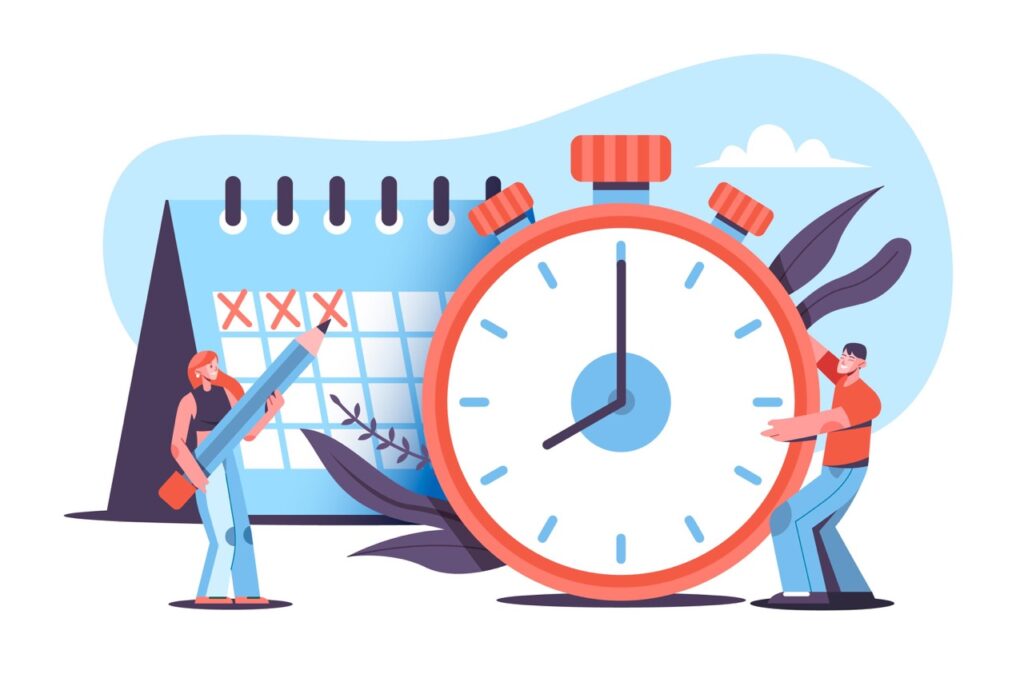One of the biggest challenges in our life is procrastination. The understanding between those who delay their work and those who do it on time has always attracted the attention of scientists. Despite some clear differences between these two groups (social & psychological factors, outlook, vision, etc.), the fundamental differences between these two groups of people were not fully defined. In this article, I will talk about what is procrastination, what are the causes and how to cope with it using my own experiences throughout the years.
What is procrastination?

As a simple explanation of procrastination is the postponement of tasks for an undefined time period (or completely abandoning them). Unfortunately, we exhibit procrastination behaviours in all areas of life, and after a while, it becomes a habit. As a result, we are not as enthusiastic about our work as before, we do not have the motivation to complete them or we completely deviate from our goals. The work we postpone today can cause big problems tomorrow. Or when we put off doing what we need to do today, we create the risk of running out of time. With that being said, let’s focus on what are the causes of procrastination and how to beat procrastination?
1. Being a perfectionist
Perfectionism is the main cause of procrastination and perfectionism can’t beat procrastination forever. Many people try to complete their work in the best possible way. However, in most cases, they are reluctant to complete the work because they do not have enough resources to complete it. The main reason is the failure. For perfectionists, everything should be in order, without problems and in the best shape. Making mistakes is a big problem for them, and they tend to never make mistakes in their work. Therefore, in order to do their best, they are constantly waiting for the conditions to renew themselves. As a result, they constantly postpone their work by waiting for the right time to come. No matter how much you want to do everything perfectly, knowing that of the best of the best will always set you back.
2. Can’t prioritise

Not everything we do in life is interesting and fun. There are some issues, especially in the workplace, that is very tedious and tiring. In such cases, you are unable to complete the work and turn to other “interesting and fun” activities. As a result, you move away from your work and it becomes very difficult to return to your main tasks. In this way, you can’t beat procrastination and improve your efficiency. For instance, you have a report to prepare, but instead, you watch a movie, play a game, text your friends on social networks, and so on. Thus, not focusing on your main direction also harms your professional life. Procrastination is more likely to occur when you fail to prioritize your tasks. Therefore, before the start of the day, you need to choose the most important tasks to complete. Once you set your goals and tasks, this will motivate you to do something you do not enjoy.
3. Afraid to start

One of the reasons for procrastination is not starting work on time and being afraid to start. Because as long as you are afraid, you will always avoid work and as a result, you will not be able to complete the work you need to do. Afraid of starting occurs as a result of “failure” thoughts. Therefore you can’t beat procrastination and procrastination is in many ways directly related to this thinking. That is, instead of focusing on the nature and progress of the work you need to do, focusing on the outcome can frighten you and even cause you not to do it at all.
4. Mismanagement of time

One of the biggest problems associated with procrastination is often the deviation of the workday or schedule, untimely completion of planned activities, lack of efficiency and motivation, and in short, time management and productivity. Sometimes, you determine the work to be done at the beginning of the day, but after a while, you become distracted and turn to other activities. The reason is not scheduling tasks properly when planning.
Mornings are the best period to be productive and efficient. Every task you start during this period determines your day. Depending on the task status, your productivity may decrease or increase. If you complete the task faster, your brain will produce dopamine so quickly. This is a satisfaction of your brain which is the key factor of motivation. However, if you complete easy tasks so quickly, the level of dopamine will be higher. Once your brain reaches a satisfaction level, your attention will be distracted again. Therefore, you need to plan your day or week properly to beat procrastination.
How to beat procrastination

Procrastination is something that everyone has. Even the most efficient and productive people postpone their work from time to time. In fact, there are very simple ways to get rid of it.
Final remarks
Finally, procrastination does not always identify you. You continue as you work, no matter how you work. Do not forget that if you procrastinate a lot, it will become a habit. Therefore, stay away from devices, objects or activities that distract you while working. Reward yourself. Rewarding is the number one way to motivate and not procrastinate. Set an artificial deadline. Divide the tasks into parts. The most important thing is to always be honest with yourself, accept who you are and build a strategy accordingly.
Do not forget to read this article to improve your efficiency and productivity.
Follow the updates from my LinkedIn profile. Until the next article, stay tuned!


Leave a Reply
View Comments